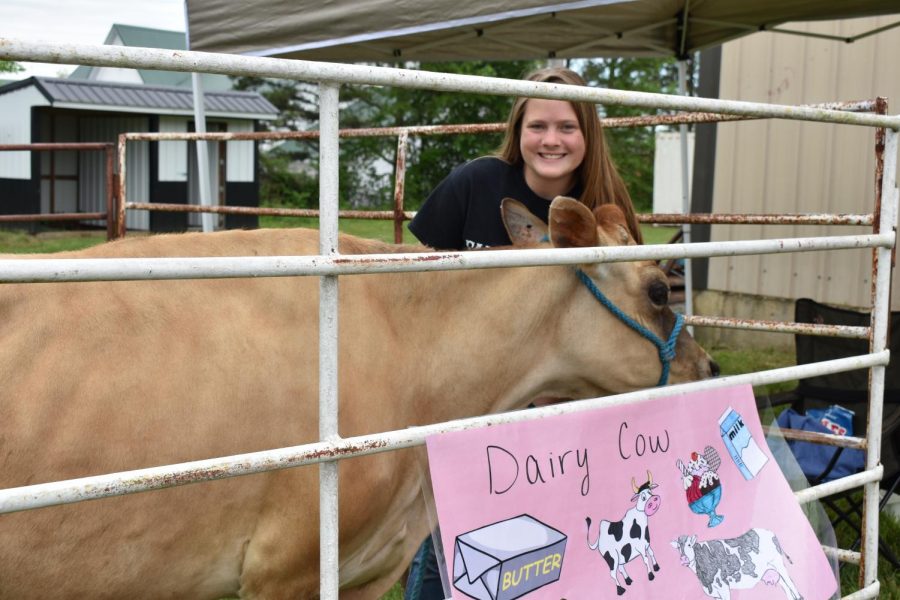Let’s Talk Agriculture: GMO’s
January 14, 2020
I’m sure you have seen thousands of items in stores labeled as ‘Non-GMO’, which sounds great, but does anyone really know what this means?
As the stereotypical rural high school student, I’m involved in FFA, 4-H, and agriculture in about every aspect. I raise my own beef, yet I have no clue what qualifies to be ‘Non-GMO’, or what it means. GMOs are not only something that affects the consumer, but impacts farmers as well.
First, what are GMOs? GMO stands for ‘Genetically Modified Organism’, but that doesn’t clear up exactly what they are. Genetics are the make-up of something, in this case it would be the organisms. Organisms are modified, or made differently than originally intended for to improve our food.
How do GMOs affect us through the food we eat? GMOs can be found in almost every kind of food we eat; corn, seedless grapes, soybeans, potatoes, tomatoes. The list is endless, and is not specific to one food group. Many meats contain GMOs, due to the certain type of grain/forage fed to the animal. The point is, GMOs are found everywhere, and it is close to impossible to not eat GMOs. As scary as GMOs sound, they are not harmful to the body, as proven by multiple scientists and researchers. According to Harvard University, an anti-GMO advocacy group (Institute for Responsible Technology) went on to publish data showing that a lab rat died in five days due to eating only a potato that had GMOs. As students took it upon themselves to further research this issue, it was determined that the rat died from pesticides that were on the potato.
This is not the first time an anti-GMO group has published ‘research’ scaring the public into believing that GMOs are bad for their health. This trend grew in popularity in 2016 when “The Non-GMO Project” started. Their website states ‘facts’ over how the outcome of GMOs are unknown, GMO crops are offended ‘infected’ with herbicides and pesticides. However, many of these are the furthest you can find from facts.
The Non-GMO Project has pushed farmers to change their way of life, by scaring the American public to believe that GMOs are bad for their health. Though, many of these modifications are made to improve the food we eat.
Whether you choose to join “The Non-GMO Project” or not, it is important to research the effects of these choices.
